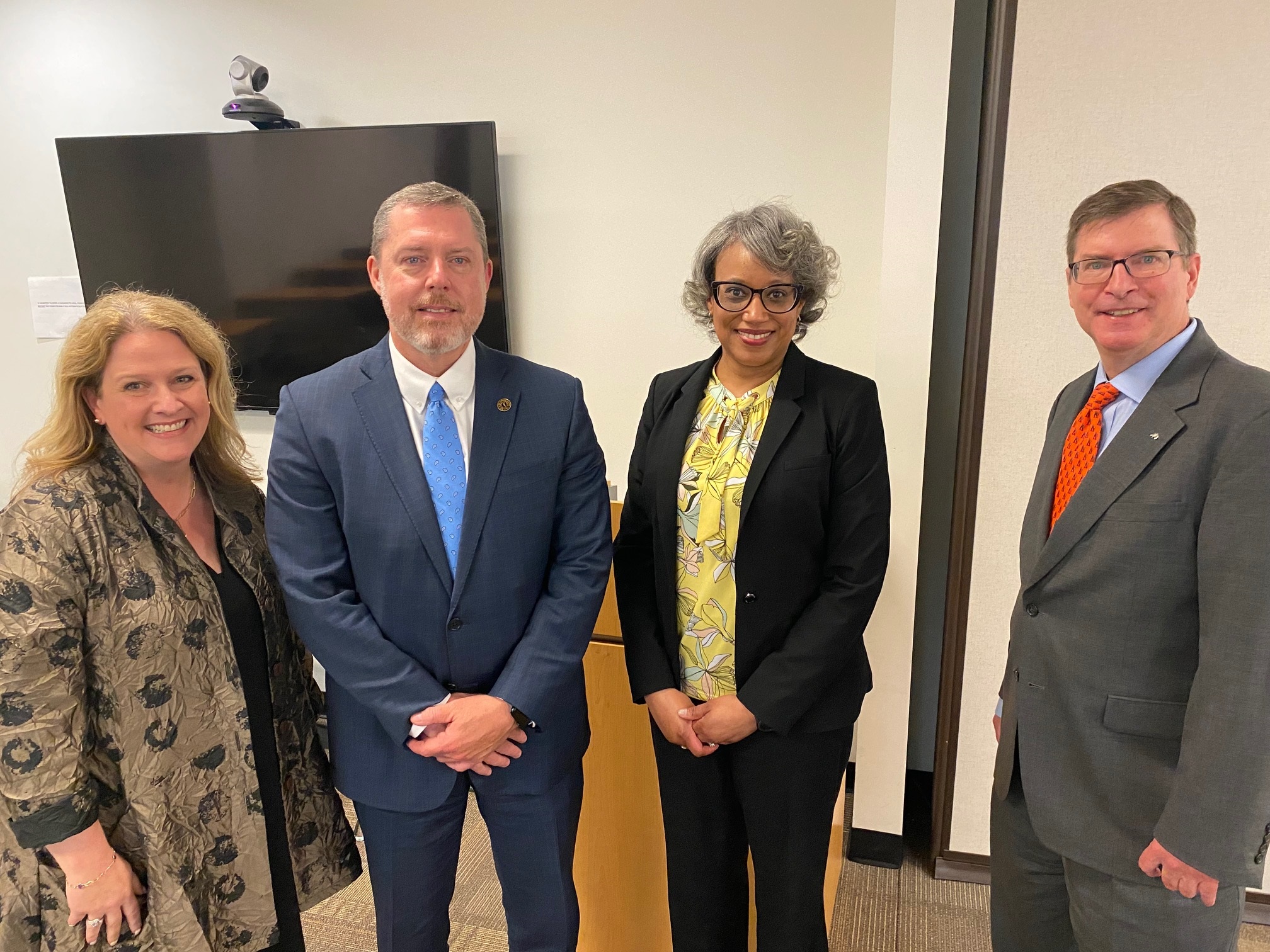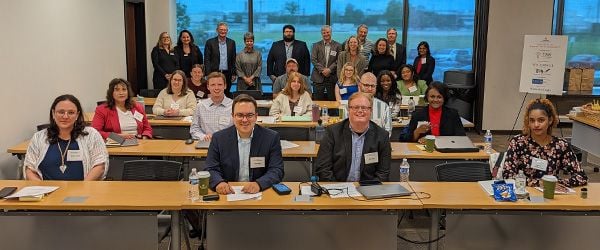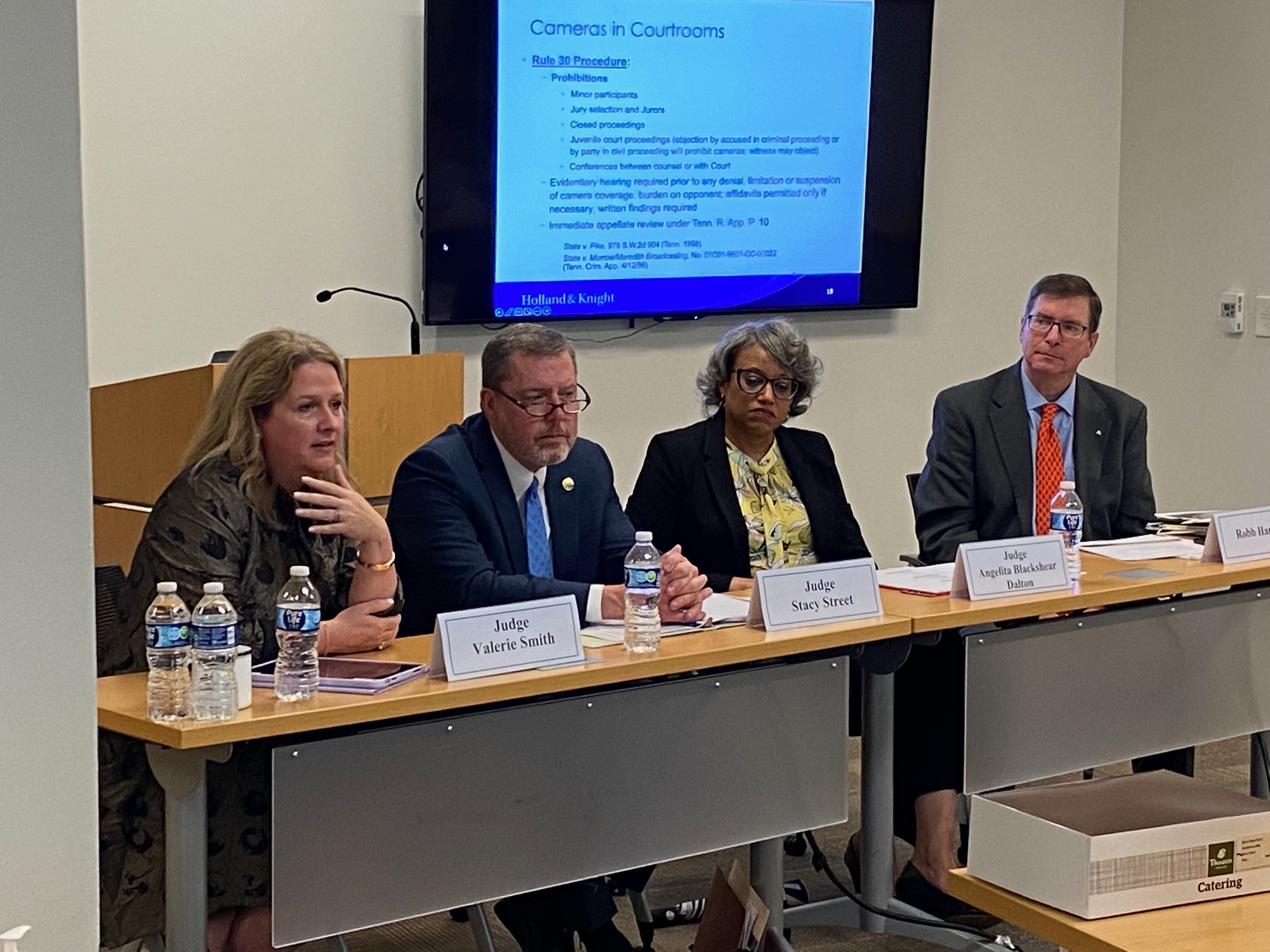The Open Meetings Act, an inside look at investigative journalism, and covering state and local government were just a few of the topics that drew Tennessee news reporters to the annual TBA Reporters Workshop. The workshop was held April 28-29, in Nashville and served as an opportunity for state judges to discuss Tennessee Supreme Court Rule 30, which governs media coverage of court proceedings.
“It’s important to have these workshops so that those covering court proceedings understand Rule 30 and the reasons it exists,” said Judge Valerie L. Smith, Circuit Court, 30th Judicial District (Shelby County).
The Tennessee Bar Association, the Tennessee Association of Broadcasters and the Tennessee Press Association Foundation partnered to organize the event. According to TBA.org, reporters were selected from a record number of applicants eager to gain a better understanding of courtroom reporting.
“It also provides an opportunity for young or new reporters to learn what is expected by Rule 30 both before court appearances and during the hearings or trials themselves,” said Judge Stacy L. Street, Criminal Court, 1st Judicial District (Carter, Johnson, Unicoi, Washington counties). “Prior understanding can prevent most problems from occurring during the proceedings.”
Tennessee Supreme Court Rule 30 applies to all state and county courts across Tennessee. The Rule covers what equipment, including cameras, microphones and recorders, can be used in the courtroom as well as the process for requesting media access.
“The Reporters Workshop provides education to representatives of the media on rules applicable to media access, particularly pursuant to Tennessee Supreme Court Rule 30,” said Judge Angelita Blackshear Dalton, 20th Judicial District Criminal Court (Davidson County). “Additionally, the workshop provides insight into concerns that judges have in complying with Rule 30, providing public access through the media, and protecting the integrity of court proceedings.
“One area where there can be an improvement in the understanding of media access to the courts is boundaries within which judges have to operate in order to allow public access, while at the same time protecting the integrity of the proceedings,” said Judge Dalton. “For an example, there are occasions where judges have to limit public access via the media in order to protect vulnerable victims and witnesses, or juror identity. There are also occasions where judges limit public access to information that could possibly violate an individual’s privacy rights or contaminate witness testimony or impartiality of prospective jurors. In these situations, the purpose is not to disallow access to our courts, but rather to protect the integrity of the process in order for the parties to have a fair and impartial proceeding and due process in our courts. Overall, media access is welcomed in our courts in order to provide the public with knowledge of events that impact our communities.”
While Rule 30 provides the framework for media access to the courts, there is also room for judicial discretion.
“The workshops benefit both the presenters and the reporters who participate, and hopefully ease some of the tension that exists sometimes between the courts and the media,” said Judge Street. “It helps all to understand that sometimes courts need to be more open and sometimes courts have an obligation not to disclose certain information at certain times in the trial process. The workshops help to explain this in a more informal setting.”
In addition to the judges, veteran reporters Demetria Kalodimos, Meribah Knight and Ben Hall, as well as legal media experts Paul McAdoo, Deborah Fisher and Seth May served as panelists.





